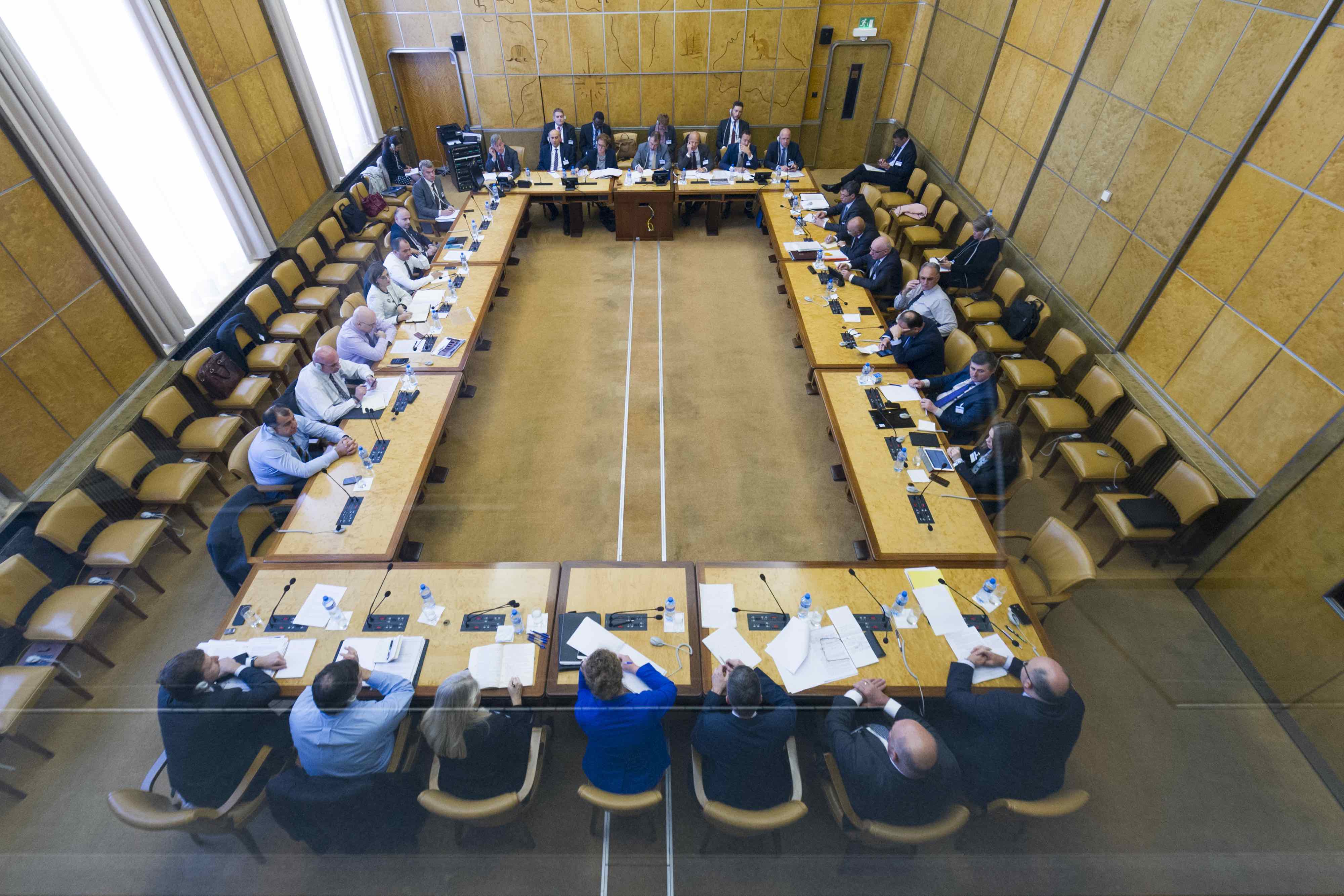
57th Round of Geneva International Discussions
On April 4-5 the 57th round of the Geneva International Discussions (GID) – a multilateral forum to address security and humanitarian consequences of the 2008 Russia-Georgia war – was held in Geneva. The meeting, which was supposed to be held in February this year, had been postponed triggering dissatisfaction and critique from the Abkhaz, Ossetian, and Russian participants, with the Abkhaz de-facto authorities refusing to host the co-chairs’ visit to Abkhazia at the beginning of February.
The GID meetings are co-chaired by representatives of OSCE, EU, and UN, and involve participants from Georgia, Russia, and the U.S., as well as members of both the exiled Georgian administrations of Abkhazia and Tskhinvali Region/South Ossetia and the two regions’ Russian-backed authorities, in their personal capacities. Meetings are held in two working groups, with the first group discussing peace and security matters, and the second – humanitarian concerns.
Positions Taken: Tbilisi
According to the Georgian MFA , “the Georgian side focused on the need to fully implement the international obligations assumed by Russia under the six-point cease fire agreement of August 12, 2008 and the safe and dignified return of displaced persons and refugees from the occupied territories to their homes”.
During the discussion on the issue of the return of IDPs and refugees from the occupied territories to their homes, the Russian representatives left the negotiation hall, as they have done before.
Positions Taken: Moscow, Sokhumi, Tskhinvali
Following the round, the Russian MFA said it is important to prevent “the politicization of the GID through unmotivated cancellations and postponements of regular rounds” and that prolonged pauses in the negotiation process are fraught with an increase in tension in the region”. It noted the unanimity of the Abkhaz, S. Ossetia, and Russian positions on this issue.
Russian MFA also said that it pointed out “the unacceptability of the ongoing attempts of the “collective West” to transfer of logic of confrontation from Ukraine to the “Transcaucasus”, which is expressed in provocative calls for Tbilisi to open “a second front” against Russia in Abkhazia and South Ossetia.
Russian MFA noted “with satisfaction” the restraint shown on the ground by Sokhumi, Tbilisi, and Tskhinvali resulting in a ”calm” situation on the ground and the absence of serious incidents. The Russian MFA noted it was possible to maintain a dialogue through the Ergneti IPRM and said that “the issue of restoring the functioning of Gali IPRM is also “on agenda”. Moscow again raised the issue of a legally binding agreement on the non-use of force by Georgia against Abkhazia and South Ossetia, and the process of “delimitation and demarcation” of the so-called “borders”.
Sokhumi said, in a similar vein that the Abkhaz participants focused particular attention on the issue of the legally binding non-use of force agreement, noting the Georgian side refused to discuss this issue. Sokhumi also noted the need for the resumption of Gali IPRM, but that “proposals of the Abkhazian delegation aimed at unblocking the IPRM format did not receive support from the Georgian participants”. The Abkhaz delegation expressed serious concern over the latest internal political events in Georgia “which began to gain a foreign political context” noting the calls of Georgian opposition to open “the second front could lead to unpredictable consequences and provoke a new escalation of tension in the region”. On the work of the Working Group 2, Sokhumi said the Abkhaz side raised the issue of using Abkhazian passports as international travel documents, and issues related to education and medical care.
According to the Tskhinvali-based RES news agency, S. Ossetia participants raised the issue of non-use of force, demarcation and delimitation, the importance of the IPRM mechanism, and the “discriminatory nature of some states’ visa policy towards the inhabitants of S. Ossetia and Abkhazia”. “The discussion on refugees did not take place, and will happen in case Georgia stops politicization of this problem” – said Tskhinvali.
The GID co-chairs issued a press-communique on the results of the meeting, which notes that the participants reviewed security and humanitarian developments since the previous GID round held in October 2022.
The co-chairs note that “against the backdrop of the highly challenging geopolitical environment, the participants were unanimous in the need to ensure continuity of the GID.
According to the statement: “following intense exchanges on non-use of force and international security arrangements, the participants could not reach a common understanding on this core item on the agenda”. The co-chairs also express regret that the issue of IDPs and refugees could not be fully covered either due to a walkout by some participants.
The Co-Chairs informed the participants about their intention to hold the next GID round in mid-July 2023, pending confirmation by all participants.
Also Read:
- 06/10/2022 – 56th Round of Geneva International Discussions
- 09/12/2021 – 55th Round of Geneva International Discussions
- 15/10/2021 – 54th Round of Geneva International Discussions
- 01/07/2021 – 53rd Round of Geneva International Discussions
This post is also available in: ქართული Русский